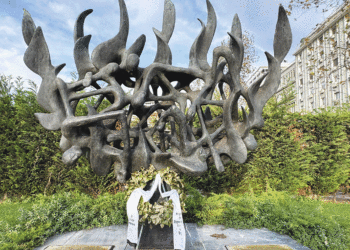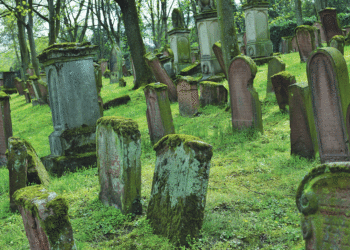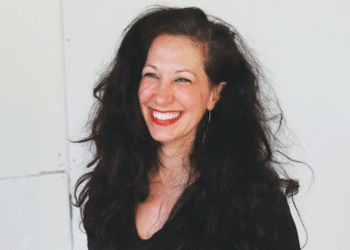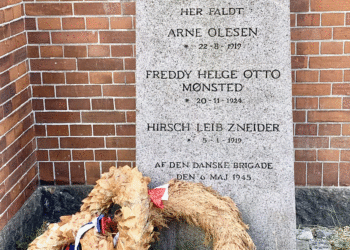Israeli native Sam Kedem marries Jewish values with responsible farming
By ROBIN DOROSHOW
One of our family’s favorite destinations is the southeastern portion of Minnesota; the drive along the Mississippi River is beautiful all seasons of the year. My husband was working on a project in Winona over the course of the past year, so we made the drive more frequently than usual.
If you take Highway 61 south a few miles out of Hastings, there is a sign for Sam Kedem Nursery and Garden. On more than one occasion I have wondered about the name — sounds kind of Jewish, no?
Last fall, just before Rosh Hashana, I went on the Internet in search of organic apples. Sam Kedem’s farm came up offering organic apples. I needed some other produce for holiday dishes, too, so I got in the car and headed toward Hastings.
Sam Kedem Nursery and Garden is a right and then an almost immediate left off Highway 61 on 191st Street East, and can be seen from the highway. While the address is Hastings, it is several miles south of the town itself.
Past the sign announcing that I had arrived at the farm, the driveway wound through a sizable grove of apple trees to a farm store, several other small buildings, a chicken coop, several frame growing houses and a farmhouse.
I entered the store — Sephardic cookbook in hand — ready to shop. I found beautiful, organic apples, as well as eggplant, peppers and other items for which my recipes called.
 Sam Kedem and his wife, Rachel, operate Sam Kedem Nursery and Garden, south of Hastings, which was certified organic in 2006. (Photo: Robin Doroshow)
Sam Kedem and his wife, Rachel, operate Sam Kedem Nursery and Garden, south of Hastings, which was certified organic in 2006. (Photo: Robin Doroshow)
A short while later, a man with curly salt-and-pepper hair entered the store. I approached him with a question, and his accent told me he wasn’t from Hastings. I introduced myself and asked if he was from Israel. Sam Kedem replied in the affirmative and we had a nice conversation, which ended with wishing each other “L’shana tova.”
Since we met last fall, I have had the opportunity to visit the farm on a few occasions, meet Sam’s wife, Rachel, and talk with them more. The first time I entered the Kedems’ house, Rachel was skyping with Sam’s sister in Israel.
The Kedems first tried out farming in California and Michigan before landing in Minnesota. The state’s liberalism was an attractive feature, and Sam puts an emphasis on was. Sam learned about agriculture in Israel and says that the pace of farming fits his personality.
Rachel, who has an accounting background and holds a day job in St. Paul, takes care of the accounting needs of the farm.
In 1989, Sam and Rachel started Kedem Nursery, which specialized in roses. Most roses are bred for the cut flower industry and will not thrive in Minnesota’s climate. Sam’s work with roses started with collecting more hardy cultivars that will perform in gardens in this climate.
I counted 200 varieties of roses on the Kedem Web site. Sam says that many Minnesota gardeners feel that they have failed with roses, but they are simply growing varieties that are too tender for our climate. He helps gardeners find the right roses to grow for their particular gardening needs.
In 1996, the Kedems added “Garden” to the business’ name. While they began using organic and sustainable farming methods early on, they became certified organic in 2006. In addition to apples, they grow a variety of berries and a range of vegetables. In the store you will also find fresh honey, pickles, jams and a Mediterranean sauce similar to matbucha, a cooked dish of tomatoes, peppers, garlic and chili pepper.
The last five years they have worked on developing ever-bearing strawberries, a variety that is more typically found in southern states. This year they expect to have triple the amount of strawberries as they did last year.
Sam is passionate about organic farming and will not use products containing petroleum. He likened organic practices to the laws of kashrut — prohibited are genetically modified organisms (GMOs), antibiotics, herbicides, anything synthetic. He walked me through the process of turning inorganic land into organic land; a process lasting three years.
As the Bible teaches, even the soil must rest; the soil itself is an organic thing and, as such, must be treated properly. Sam believes that organically grown foods are tastier and healthier, containing much greater nutritional value than conventionally grown foods. He is doing his part to improve the food system by using green manure and other natural products to improve the soil and, ultimately, the biosphere.
Sam speaks of eating seasonally and locally to reduce our carbon footprint, and also encourages people to go to farms, ask questions of the farmers, and work on the farm to establish a connection to the food that they eat.
But what about the higher costs associated with organic foods? For Sam this is an easy question to answer. He believes that if you don’t eat healthy foods now, you will pay the price later in terms of illness and medical costs.
The tag line at the bottom of the Kedem Web site says it all: “Dedicated to personal wellness, safe environment and responsible farming.” While Sam is not a religious man, this meshes well with Jewish values.
Kedem Nursery and Garden offers shares in a CSA (Community Supported Agriculture) program. Their CSA differs from most such programs; rather than receiving a box of farmer-chosen assorted produce each week, members can choose from a weekly menu of options. Options include items in the store, plants, meat, birds and pick your own (PYO) on the farm, in addition to traditional CSA fresh produce.
Full and half shares are still available for this season, and cost will be prorated to the member’s start date. This flexible CSA program runs through October. Plans are also underway for a winter CSA program.
Volunteering on the farm is encouraged to create stronger bonds between community and farmer. Volunteers can also earn monetary credit for farm products, and it’s fun!
***
For information on Sam Kedem Nursery and Garden, visit: www.kedemroses.com or e-mail Sam at: info@kedemroses.com.
(American Jewish World, 5.25.12)









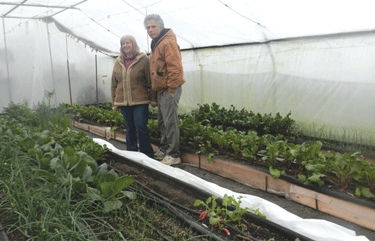 Sam Kedem and his wife, Rachel, operate Sam Kedem Nursery and Garden, south of Hastings, which was certified organic in 2006. (Photo: Robin Doroshow)
Sam Kedem and his wife, Rachel, operate Sam Kedem Nursery and Garden, south of Hastings, which was certified organic in 2006. (Photo: Robin Doroshow)
